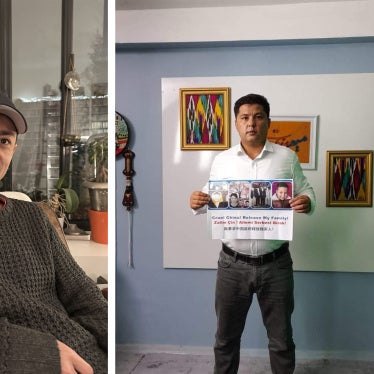In a fresh reminder of its poor human rights record, the government of Saudi Arabia has reiterated that public demonstrations are not permitted in the kingdom under any circumstances.
The Saudi government warning came after its security forces reportedly dispersed a gathering in the northern town of Skaka, where some 150 Saudis protested Israeli military actions in the West Bank, and arrested dozens of demonstrators. The official Saudi Press Agency on April 4 quoted interior minister Prince Nayef bin Abd al-Aziz as saying: "This behavior is not allowed and it must not happen again.” He added that demonstrations were “not compatible” with the kingdom’s social system.
“Peaceful assembly is a basic right,” said Hanny Megally, executive director of the Middle East and North Africa division of Human Rights Watch. “The government should be promulgating laws to guarantee this right, not threaten harsh measures for those who try to demonstrate.”
In October 2001, Saudi authorities reportedly arrested several people who participated in a demonstration in Riyadh in support of Palestinians. In February 2002, Prince Nayef made clear that demonstrations would not be tolerated during the annual pilgrimage to Mecca. “We will not permit…demonstrations or marches during the pilgrimage,” he said at a press conference on February 16. “We are totally and firmly ready to face any incident with wisdom, firmness, and force.” The government reportedly deployed 20,000 military and security forces personnel in and around the Holy City of Mecca.
Human Rights Watch recently interviewed Saudi citizens from across the political spectrum who strongly criticized the absence of basic rights in the kingdom, including the right of freedom of expression, association, and peaceful assembly.
“The government’s refusal to open up the country’s political space leaves it terribly out of touch with its own citizens as well as in violation of basic international human rights standards,” said Megally. He noted that the kingdom is currently a member of the United Nations Commission on Human Rights, now holding its annual meeting in Geneva.
Saudi Arabia is not a party to the International Covenant on Civil and Political Rights, one of the basic human rights treaties. Article 21 of the Covenant recognizes the right of peaceful assembly.







